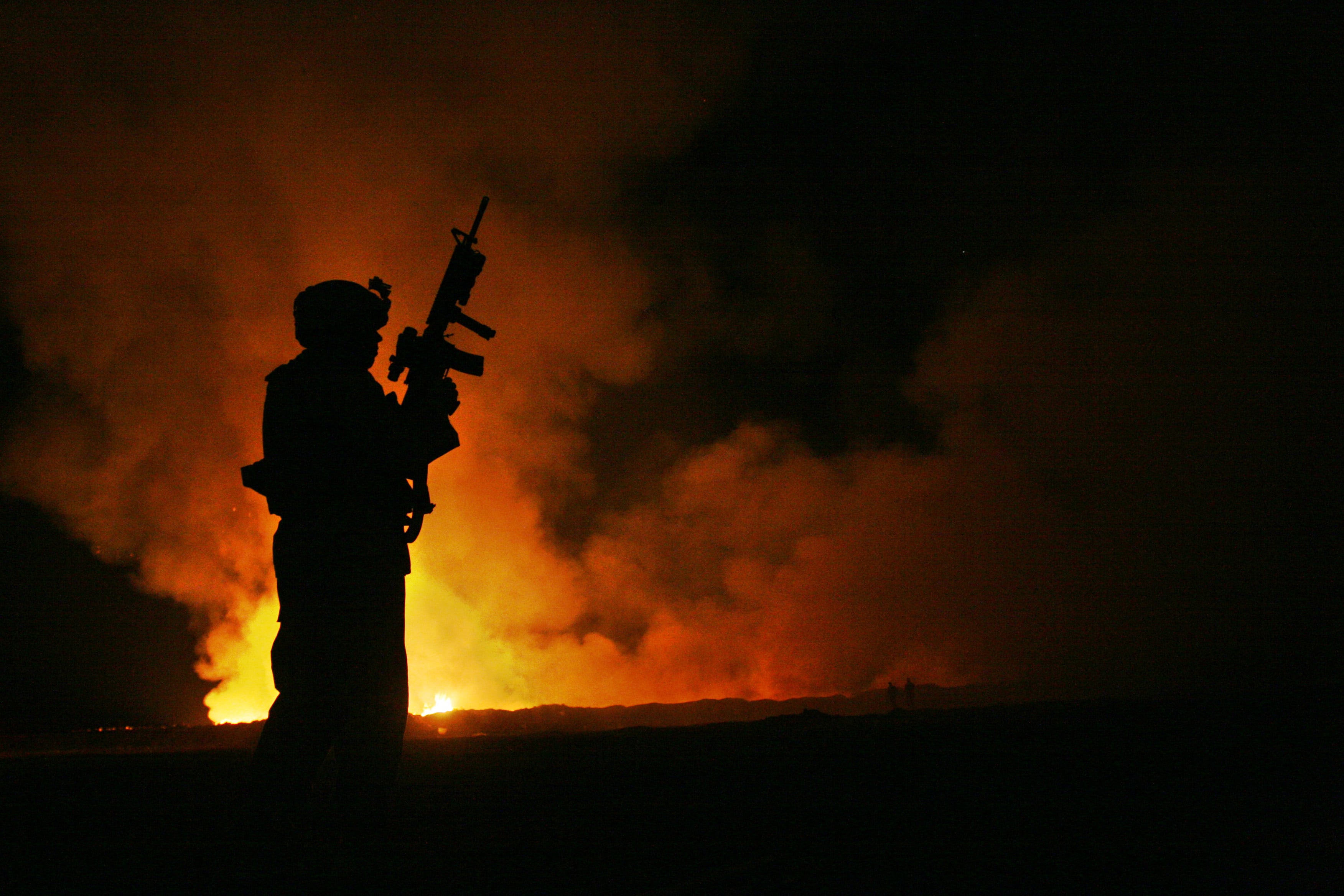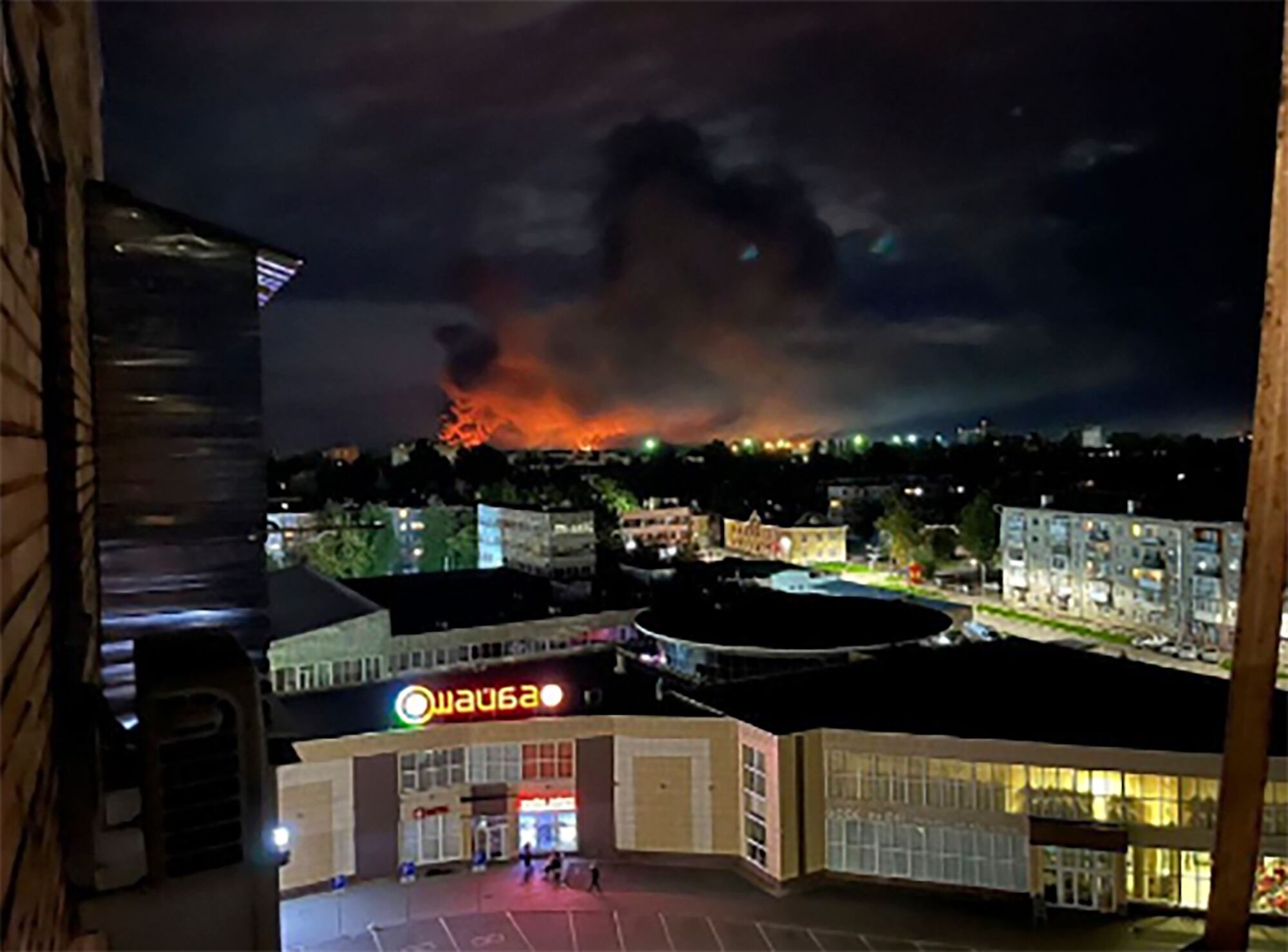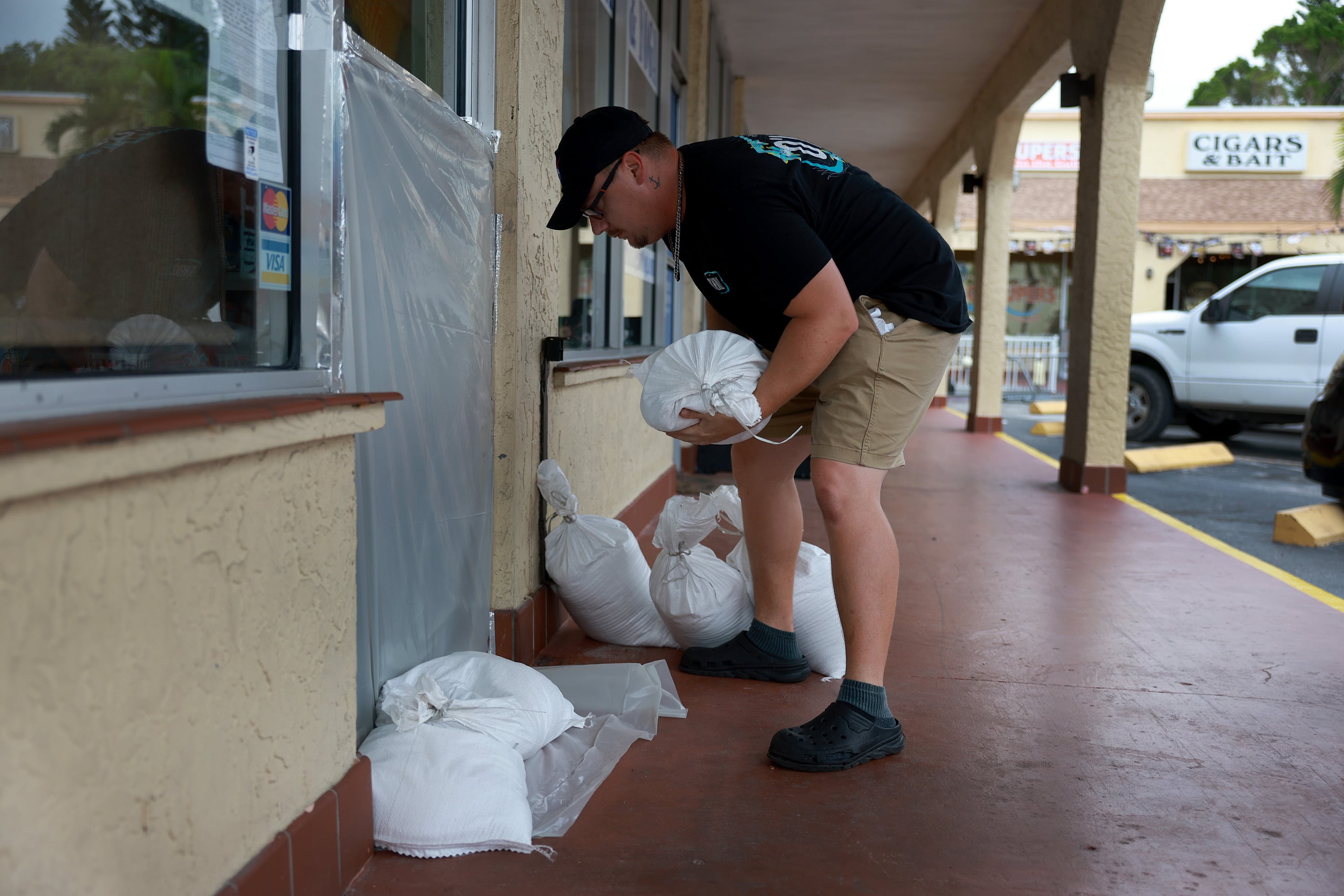Lawmakers on Wednesday launched their latest effort to piece together comprehensive legislation on veterans’ toxic exposure illnesses with the goal of providing a clear path forward by the start of the summer.
At a hearing on the issue before the Senate Veterans’ Affairs Committee, Chairman Jon Tester, D-Mont., said he wanted to mark up the package “before Memorial Day” and promised a “bold” new approach to getting more medical care and benefits to veterans suffering from illnesses connected to burn pits, chemical exposure and other potential poisoning while on duty.
“We must provide health care and benefits to all veterans suffering from the effects of toxic exposure, past, present and future,” he said. “It is the cost of war. That is pure and simple.”
Dozens of measures on the topic have been introduced since the start of the new Congress in January, including a bipartisan measure touted by comedian Jon Stewart and a host of other advocates which would give presumptive benefits status to veterans who served in Iraq, Afghanistan and other overseas war zones where burn pits were used.
RELATED

That and 21 other proposals were debated by the committee on Wednesday, and will be discussed again next week when the House Veterans’ Affairs Committee holds a similar hearing.
In a statement Tuesday, House committee Chairman Mark Takano, D-Calif., promised coordinated work with Senate lawmakers on the issue in the weeks to come.
“It is critical that we hear from experts and veteran stakeholders as we figure out the best way to care for all veterans who’ve been exposed to toxic substances regardless of where or when they’ve served,” he said.
At the heart of all of the proposals are attempts to grapple with the uncertainty surrounding direct evidence linking troops’ service with rare respiratory illnesses and cancers in later years.
Veterans Affairs officials estimate more than 3.5 million troops were exposed to the toxic smoke from burn pits during overseas deployments over the last 20 years. But since few overseas combat sites routinely monitored air quality and chemical exposure of troops, directly linking those pits to health issues later in life has proven difficult.
Only about 241,000 veterans have signed up for the department’s Airborne Hazards and Open Burn Pit Registry, designed to track illnesses related to burn pit exposure and ease access to veterans benefits. Advocates have pushed for reforms to the registry, the benefits system, and VA’s approach to current and future toxic exposure issues.
But sorting through the various congressional proposals could prove challenging.
Veterans groups have praised the new push on the issue but warned against transferring the cost of new benefits to veterans, or too severely limiting eligibility, or assuming that a few simple steps will help the hundreds of thousands of veterans potentially impacted by toxic chemicals during their military service.
“Individually, not one of these bills will solve the problems toxic exposures pose,” said Shane Liermann, deputy national legislative director at Disabled American Veterans. “But collectively they can address issues of direct service connected benefits, health care, presumptive diseases and also establish a framework for the future.”
RELATED
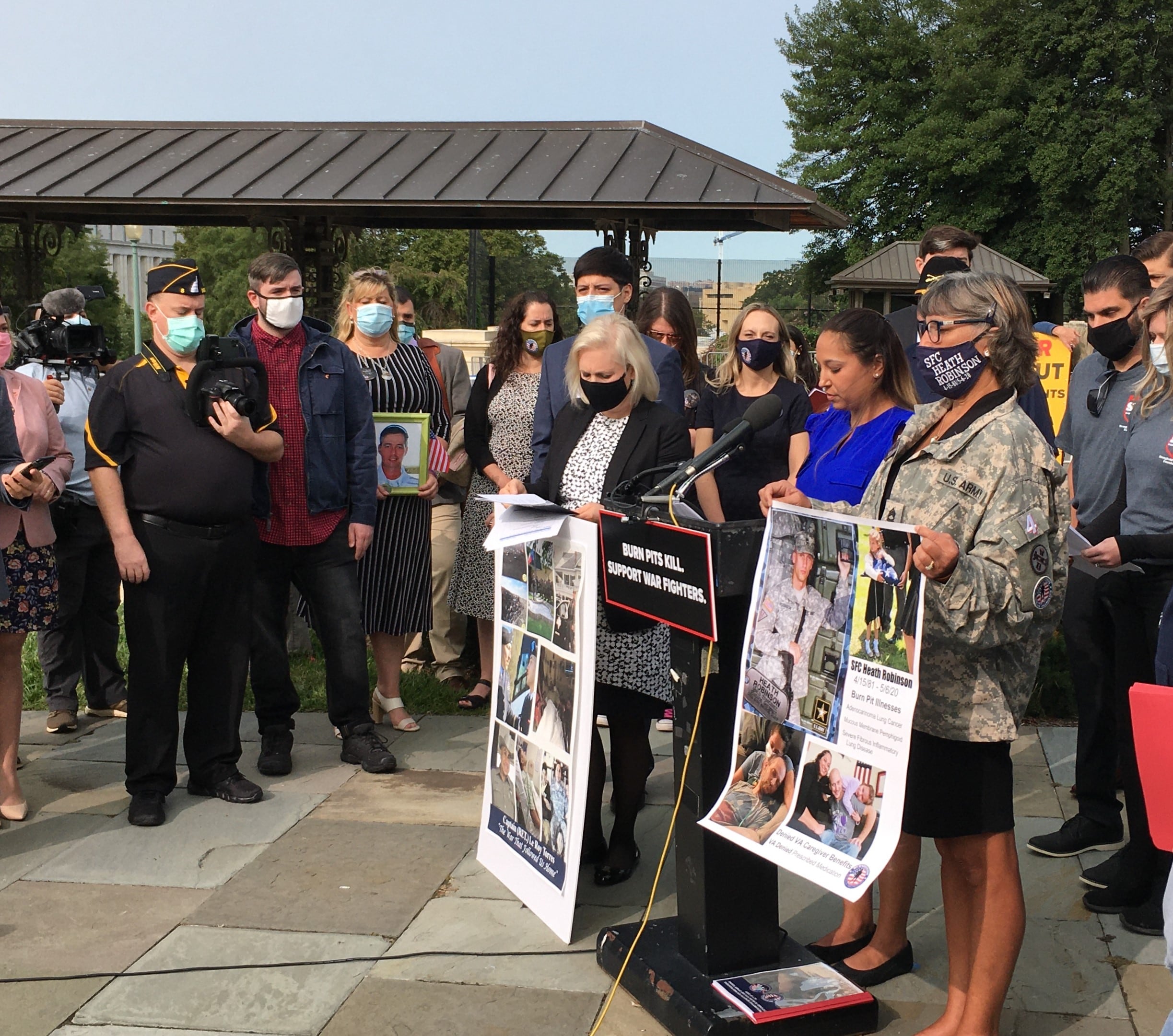
On Monday, VA Secretary Denis McDonough said he is committed to improving his department’s response to the issue, and urged all veterans to file claims if they believe they have suffered any ill-effects from their military service.
“Our commitment is to treat each claim with the care it deserves,” he said. “As we get more claims, we can aggregate them to draw bigger conclusions.”
Liermann noted that nearly 80 percent of all burn pit related disability claims have been rejected by VA in recent years, frustrating veterans already suffering serious health issues.
Ronald Burke, VA’s deputy under secretary for policy, told the Senate committee on Wednesday that the department is reviewing that process now to find improvements. But he also called legislative action on the issue “premature” while the department conducts further analysis and research.
That drew the ire of Senate Veterans’ Affairs Committee ranking member Jerry Moran, R-Kan., who lamented VA’s “sluggishness” on addressing the issue.
“VA continues to drag its feet when it comes to taking action on this,” he said. “Some of the toxic exposure bills on today’s agenda are driven by VA’s lack of action so far.”
RELATED
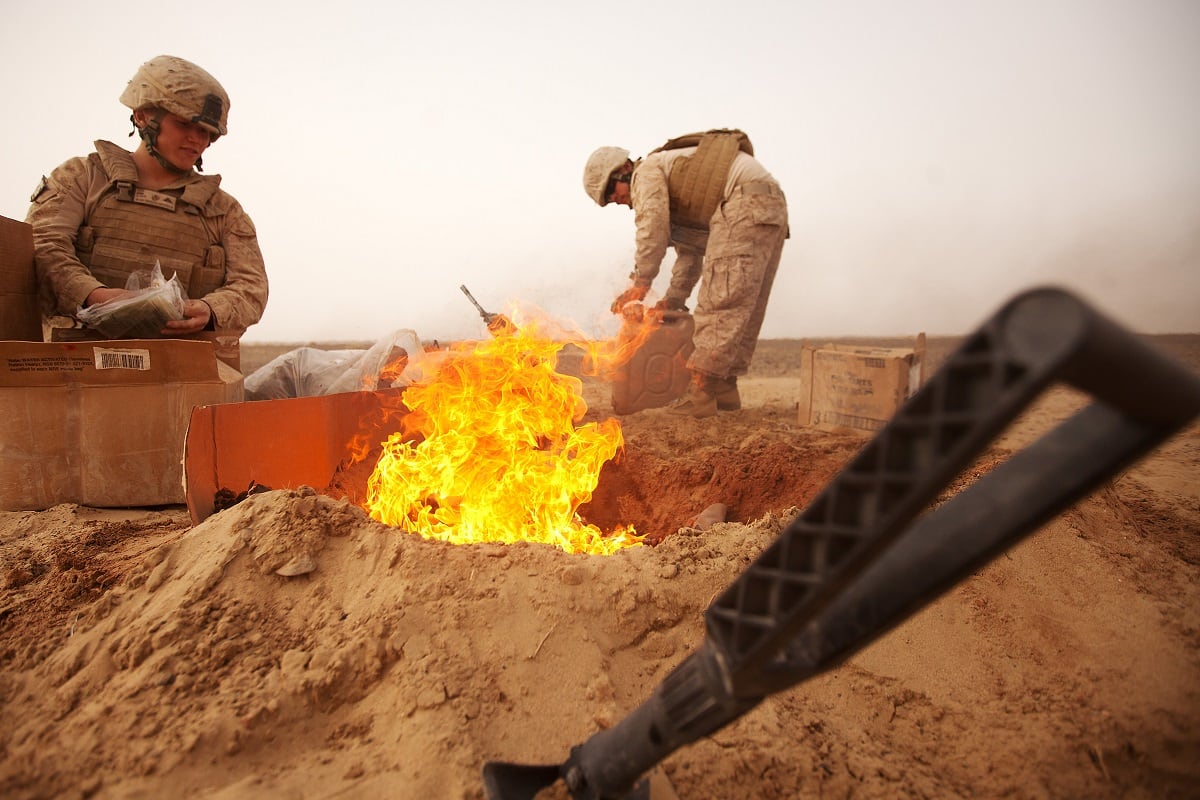
Earlier on Wednesday, Rep. Elissa Slotkin, D-Mich. and sponsor of another measure that would grant presumptive benefit status to troops who served in certain overseas locations, said she was confident that McDonough is committed to dealing with the issue.
But she added that lawmakers have to help speed the process.
“Many veterans are coming home and experiencing illnesses — sometimes strange and unexpected — because of that exposure,” she said. “And they have critically been unable to access health care and benefits from the VA … We have to make it easier for veterans to cut through the red tape that’s been complicating this process for a very very long time.”
Tester said if his staff can craft a compromise package on the issue with House leaders and outside advocates in the next four weeks, he is optimistic that all of Congress can work on the legislation through the summer and send a final measure to President Joe Biden later this year.
If not, it’s unclear when any of the toxic exposure measures could come up for bigger votes, or if the issue simply drifts into yet another year.
Leo covers Congress, Veterans Affairs and the White House for Military Times. He has covered Washington, D.C. since 2004, focusing on military personnel and veterans policies. His work has earned numerous honors, including a 2009 Polk award, a 2010 National Headliner Award, the IAVA Leadership in Journalism award and the VFW News Media award.
